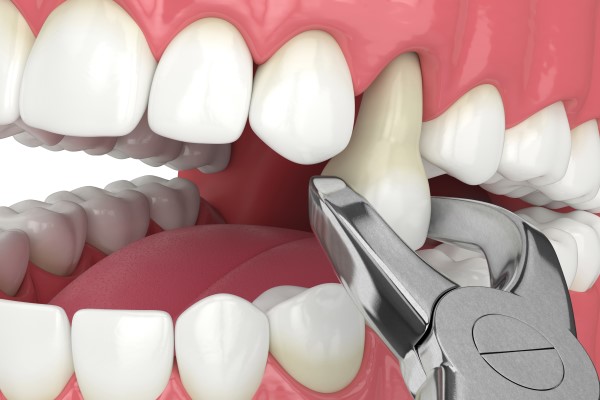Can a General Dentist Perform a Tooth Extraction?
If you need a , you probably wonder if your regular dentist can perform the extraction or if the procedure will need to be done by an oral surgeon. The answer to this question depends on several factors and should be determined on a case-by-case basis. Read on to understand the different factors that go into you and your dentist or oral surgeon deciding who will perform your tooth extraction.
Simple extraction vs. surgical extraction
The first factor in play is whether the extraction will be a simple extraction or a surgical extraction. A simple extraction is removing a tooth that is fully erupted, meaning that it is fully above the gum line and is visible in your mouth. A surgical extraction is necessary when a tooth has not erupted and is hidden below the gum line in the jawbone or has only partially erupted. This situation is common with wisdom teeth, which are the last set of molars that come in. A general dentist can perform a simple tooth extraction using forceps. For a surgical extraction, however, only an oral surgeon is qualified to perform the extraction procedure.
General dentist vs. an oral surgeon
It should be noted that a general dentist can perform simple tooth extractions. Many people rely on their general dentist to perform this routine procedure, and it is easily accomplished in-office. However, your dentist may refer you to an oral surgeon in some instances. If you have limited jaw mobility, large sinuses, or your teeth are positioned in a way that prevents a general dentist from being able to perform the tooth extraction; then an oral surgeon will need to do the procedure.
Another reason you would need an oral surgeon for your tooth extraction is if the tooth or teeth you are having removed are cracked or broken. Removal of cracked or broken teeth is more complicated than extracting an intact tooth and requires oral anesthesia. Oral surgeons are can also help patients with dental anxiety because oral surgeons are qualified to administer a variety of different types of anesthesia.
When simple tooth extractions aren’t simple
Simple tooth extractions are not always so simple. If, for some reason, you are at risk for complications from simple tooth extraction, your general dentist will guide what you should do next. Some of the complications patients may experience during a simple tooth extraction include cracks or complex tooth root systems.
It’s important to note that every patient is different. The requirements for your procedure will depend on many factors, such as your current tooth health, location of the extraction, and your risk of developing complications. Your dentist can provide more information about whether he or she can perform the extraction in their office.
Request an appointment here: https://hydepark.smilestudiochicago.com or call Hyde Park Smile Studio at (773) 232-1973 for an appointment in our Chicago office.
Check out what others are saying about our dental services on Yelp: .
Related Posts
You may be wondering if you need to get a tooth extraction, or you may be feeling apprehensive about it. Luckily, tooth extraction is a safe procedure. Often, it is imperative to remove the tooth as quickly as possible. However, as long as the damaged tooth is promptly removed, the adverse effects are mitigated. We…
When you hear about a wisdom tooth extraction, you may have many thoughts and questions. If you have a procedure coming up, it is helpful to understand what will happen and how it can benefit your health. You do not want to go into this surgery uninformed. Though the surgery can be extensive and have…
Emergency dentists will often try every possible avenue before deciding you need a tooth extraction. This procedure can reduce the risk of an infection from spreading and worsening pain. By removing the affected tooth, our team can relieve your symptoms and preserve your oral and overall health.A deep crack or break that extends under the…
Dental implants provide a durable and natural-looking solution for missing teeth. This popular teeth replacement option can last many years with proper care, improving the function and appearance of your smile. Practices like following a good oral hygiene routine, adopting healthy lifestyle habits, and scheduling regular follow-ups can all help contribute to the overall longevity…
